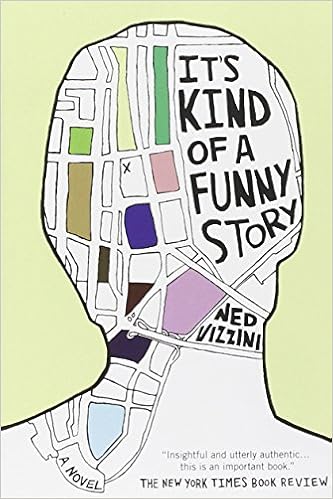Throughout Mental Health Awareness Month, many different organizations make efforts to “fight stigma, provide support, educate the public and advocate for policies that support people with mental illness and their families.” -From nami.com. The Library is no different, and to help challenge the stigmas and begin an honest discussion about mental health we’ve put together a few reading suggestions.

Everything Here is Beautiful by Mira T. Lee
“Two sisters: Miranda, the older, responsible one, always her younger sister’s protector; Lucia, the vibrant, headstrong, unconventional one, whose impulses are huge and, often, life changing. When their mother dies and Lucia starts to hear voices, it’s Miranda who must fight for the help her sister needs — even as Lucia refuses to be defined by any doctor’s diagnosis.
Determined, impetuous, she plows ahead, marrying a big-hearted Israeli only to leave him, suddenly, to have a baby with a young Latino immigrant. She will move with her new family to Ecuador, but the bitter constant remains: she cannot escape her own mental illness. Lucia lives life on a grand scale, until inevitably, she crashes to earth. And then Miranda must decide, again, whether or not to step in — but this time, Lucia may not want to be saved. The bonds of sisterly devotion stretch across oceans, but what does it take to break them?
Told from alternating perspectives, Everything Here Is Beautiful is, at its core, a heart-wrenching family drama about relationships and tough choices — how much we’re willing to sacrifice for the ones we love, and when it’s time to let go and save ourselves.” -Taken from Goodreads.com

It’s Kind of a Funny Story by Ned Vizzini
“Ambitious New York City teenager Craig Gilner is determined to succeed at life – which means getting into the right high school to get into the right job. But once Craig aces his way into Manhattan’s Executive Pre-Professional High School, the pressure becomes unbearable. He stops eating and sleeping until, one night, he nearly kills himself.
Craig’s suicidal episode gets him checked into a mental hospital, where his new neighbors include a transsexual sex addict, a girl who has scarred her own face with scissors, and the self-elected President Armelio. There, Craig is finally able to confront the sources of his anxiety.
Ned Vizzini, who himself spent time in a psychiatric hospital, has created a remarkably moving tale about the sometimes unexpected road to happiness.” -Taken from Goodreads.com

The Man Who Mistook his Wife for a Hat and Other Clinical Tales by Oliver Sacks
“In his most extraordinary book, ‘one of the great clinical writers of the twentieth century’ (The New York Times) recounts the case histories of patients lost in the bizarre, apparently inescapable world of neurological disorders. Oliver Sacks’s The Man Who Mistook His Wife for a Hat tells the stories of individuals afflicted with fantastic perceptual and intellectual aberrations: patients who have lost their memories and with them the greater part of their pasts; who are no longer able to recognize people and common objects; who are stricken with violent tics and grimaces or who shout involuntary obscenities; whose limbs have become alien; who have been dismissed as retarded yet are gifted with uncanny artistic or mathematical talents.
If inconceivably strange, these brilliant tales remain, in Dr. Sacks’s splendid and sympathetic telling, deeply human. They are studies of life struggling against incredible adversity, and they enable us to enter the world of the neurologically impaired, to imagine with our hearts what it must be to live and feel as they do. A great healer, Sacks never loses sight of medicine’s ultimate responsibility: ‘the suffering, afflicted, fighting human subject.'” -Taken from Goodreads.com
As found on the National Alliance on Mental Illness website, key mental health statistics include:
- 1 in 5 adults in the United States lives with a mental health condition.
- 1 in 25 (10 million) adults in the United States lives with a serious mental illness.
- 60 million people in the United States face the day-to-day reality of living with a mental illness.
- Half of all lifetime mental health conditions begin by age 14 and 75 percent by age 24, but early intervention programs can help.
- Additional facts and citations are available at Mental Health by the Numbers.
If you’re looking for additional resources about mental health, please follow these links:
National Alliance on Mental Illness
Thanks for reading!
-George, FTPL





